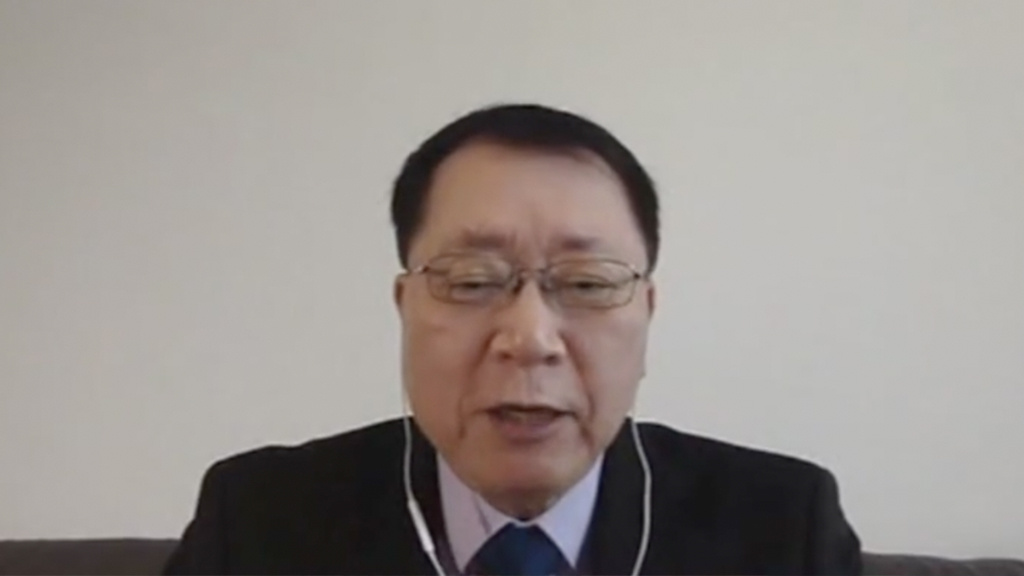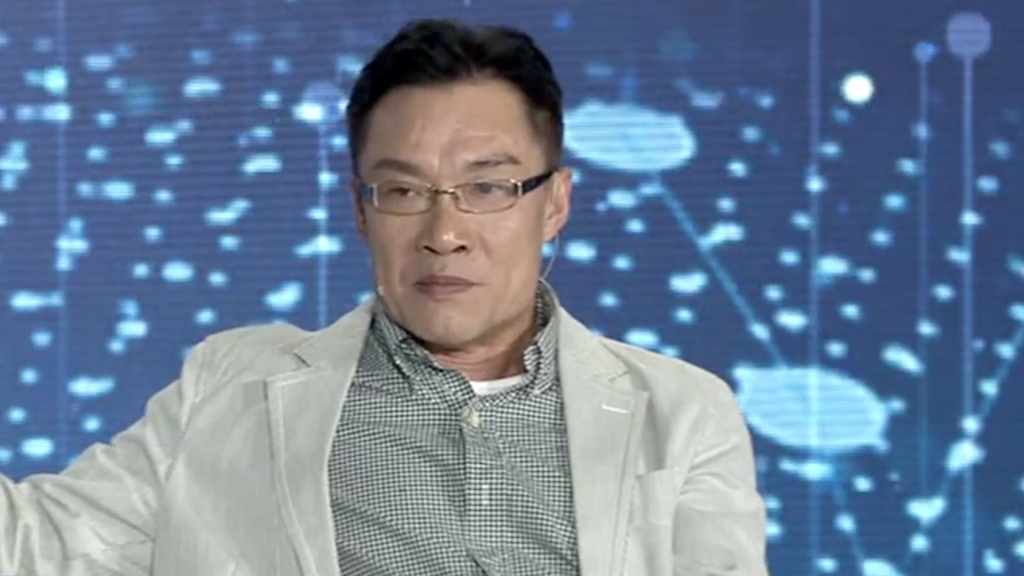02:32

The "Hong Kong and the Greater Bay Area" TV forum hosted by CGTN Think Tank and supported by Hong Kong Polytechnic University wrapped up in Shenzhen on October 16. Business leaders and academics shared their views on the region's future.
The discussion mainly focused on how different cities play different roles in the region, and how Shenzhen and Hong Kong better complement each other as tech hub and financial hub, respectively.
Ai Chunrong, Chair Professor of the Chinese University of Hong Kong, stated that within the Greater Bay Area, each city has their unique comparative advantages. There is no need to assume who can replace whom while the main focus should be about how to utilize each's advantages in a better way.
"The financial sector is certainly a comparative advantage for Hong Kong, particularly international finance. Shenzhen is the innovation hub, China's 'Silicon Valley'. To develop the comparative does not mean that everybody should do everything. There is no way either Shanghai or Shenzhen could replace Hong Kong in the near future in terms of financial center. And Hong Kong can't mimic what Shenzhen is doing in innovation," said Ai.
02:17

Discussions on Hong Kong's ongoing unrest were also examined from obstacles and opportunities perspective. Ai said, "I hope the political turmoil is short term, if it's short term, there won't be any impact on the financial and service sector."
Francis Lui, Professor Emeritus of the Hong Kong University of Science and Technology, echoed Ai's opinion on different roles of different cities. "Hong Kong is a world-class international financial center, Shenzhen is a world-class innovation center, Dongguan is a world-class manufacturing center, Guangzhou is a world-class commercial center, Macao is a world-class entertainment center. We have all these elements that are complementary to each other," he said.
Lui also said higher education fits into Hong Kong's advantages as well. "Most of the universities in Hong Kong have already built campuses in the Greater Bay Area. Some of them have been planning to build institutes and new campuses."
Martin Mueller, Chairman of the Swiss Chinese Chamber of Commerce, said Foshan and Dongguan should not be neglected in the discussion. "Don't forget Foshan and Dongguan, Dongguan, for example, has a population of my home country Switzerland with 8.5 million people more or less. Each city has its strength and characteristics. Together with the financial abilities of Hong Kong, it would be a very powerful bay area."
01:47

In his speech last month, Chinese President Xi Jinping hailed Shenzhen as an "important engine" of development for the Greater Bay Area, reigniting overseas concerns that Hong Kong's role could be diminishing.
Professor Zhao Xiaobin from Beijing Normal University-Hong Kong Baptist University United International College stated that Hong Kong's role could never be replaced in the Greater Bay Area. "Underestimating Hong Kong would be a key problem in the development of the Greater Bay Area. Hong Kong is doing quite well in business norm and business model. We need to make sure that Hong Kong can still play its original role and be able to carry its trademark."
Leslie Maasdorp, Vice President of New Development Bank, believes Hong Kong has an important role way beyond the Greater Bay Area. "Hong Kong plays a very critical role in the development of capital markets in the China mainland," he said.
Maasdorp also hailed the importance of the Greater Bay Area under the current context as part of China's deepened reform and opening-up. When the world is looking inward as a result of the COVID-19 pandemic, countries probably would look inward and tend to be protectionist. "The region is looking towards more cooperation, more free trade, more opening-up as part of the solution. The Greater Bay Area and the Belt and Road Initiative complement each other because they deepen regional cooperation and integration."
"Dialogue" is a prime time English-language daily talk show on CGTN. The 30-minute program covers a wide range of domestic and international topics, providing a balanced and critical perspective on current affairs and analysis within the framework of cross-cultural and multi-disciplinary comparisons.
Schedule: Monday-Sunday
Time (GMT): 03:30, 11:30, 19:30
(If you want to contribute and have specific expertise, please contact us at opinions@cgtn.com.)

